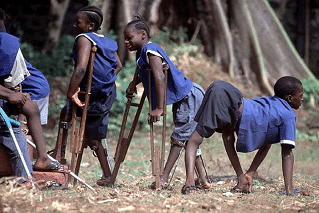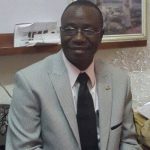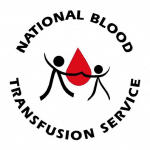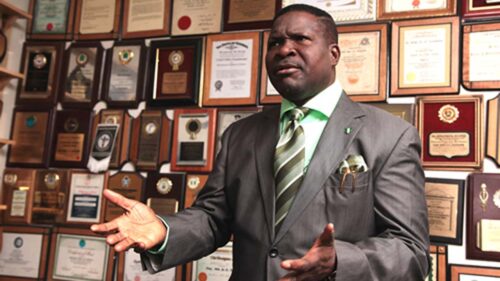Achieving polio eradication in Nigeria: Prospect and challenges

For more than two decades, polio had continue to constitute an intractable challenge to global public health and indeed the African Region. Polio was endemic in most countries in the African Region in the 1990s, with 12,000 cases reported each year in the Region. The virus was resilient and intimidating.
In 2008, the World Health Assembly (WHA) passed a declaration of polio eradication as a public health emergency. The fortunes of the virus began to change, as a new global and local impetus to fight the disease was launched.
A global partnership comprising of World Health Organizations, WHO and its key partners such as the United Nations Children’s Fund, the United States Center for Disease Control and Prevention, Rotary International, and Bill and Melinda Gates Foundation, among others), as well as other stakeholders and national governments in the African Region generated enormous human, financial and material resources committed to polio eradication.
The Global Polio Eradication Initiative (GPEI) strategies, namely strengthening immunization systems to ensure high coverage with polio vaccines through routine childhood immunization, robust surveillance for acute flaccid paralysis (AFP), supplementary immunization, and
“mop-up” immunizations were intensified to make progress.
Despite the massive international effort to eradicate poliomyelitis, the disease has remained alive and well in some corners of the world. Several previously polio-free African countries have now become re-infected following major outbreaks in some northern parts of the country.
Medical experts have said that vaccine campaigns has been flawed and failing. “There are not enough kids, particularly in the northern part of the country getting vaccinated” according to Dr. Roberts Orduen, of the Givienne hospital, Jos.
He said that in some areas, as much as 40 to 50 percent of the kids have missed out in the vaccination campaign.
The Minister of Health, professor Isaac Adewole revealed recently at the annual meeting of African Regional Certification Commission for Poliomyelitis Eradication (ARCC), in Abuja that no fewer than 100,000 children in Nigeria’s Northeast geopolitical zone are currently at risk of polio, as they have yet to be immunized against the virus.
This setback according to the Minister is as a result of the Boko Haram insurgency in some Northern part of the country.
He said that despite that, the government making considerable progress in immunisation programmes in the region.
He pointed out that Africa had made remarkable process towards eradicating poliomyelitis, noting that in 2012, the African region reported 128 wild poliovirus (WPV) cases, which accounted for more than half of the global burden but by 2013, only about 76 cases were reported; with a further decline to 17 cases in 2014 and no reported case in 2015.
“Nonetheless, in 2016, after almost two years, four cases were confirmed from areas that were under Boko Haram insurgency in Borno State in Nigeria and the outbreak was successfully contained,” he said.
The minister attributed Nigeria’s continued listing among the polio endemic countries to the inaccessibility of some areas in the northeast to the polio programme.
The Africa Regional Certification Commission for Polio had identified insurgency as a major hindrance towards polio eradication in Nigeria.
The commission therefore urged the Government of Nigeria to strengthen surveillance programmes towards ending wild polio virus in the region.
Prof. Rose Leke, Chairperson of the commission noted that in spite of the progress recorded in Nigeria on its bid to end polio, there are inaccessible areas in the countries due to insecurity in some part of the country.
She said: “We don’t know what is happening in those areas and I think that is a problem.”
However, she commended the efforts of the Nigerian government through the partnership between the National Primary Health Care Development Agency and the Army to make the inaccessible areas to shrink to smaller units.
According to her, there are smaller units in the areas affected by the insurgency and we don’t know whether there is polio there or not.
Leke said: “The last time Nigeria records significant progress and record no cases of wild polio virus suddenly the case emanated from the Borno state.
“This time we better say a little about eradication, but strengthen our efforts to move in to the in accessible areas.
“The government is doing everything possible to cover all the affected areas and then we can say there is no polio there and subsequently, we can declare that Africa is free from polio.’’
Leke said the Nigerian government has put in a great effort and much progress has been made toward ending polio in the country.
She added that ARCC had come to Nigeria to see the progress that has been made, and congratulate Nigeria for the progress recorded in the fight to end polio in the country.
She said: “We are here to also advocate for more work to be done because there is great work to be done especially in the inaccessible areas.”
She said there are nine countries in the meeting, adding that the meeting will review the complete documentation forMadagascar which claims to have achieved a polio free status.
Leke said there were nine countries that have problems with respect to polio eradication programme, adding that the meeting would discuss with them on ways to improve the situation.
She said the meeting would also review updates and progress reports on polio eradication from Democratic Republic of Congo, Nigeria and Kenya which had the outbreak of Circulating Vaccine Derived Poliovirus.
She said: “Two countries with security challenges such as South Sudan and Central Africa Republic and three other countries with surveillance challenges which include Guinea Bissau, Equatorial Guinea and Mauritania.’’
Even though the World Health Organization (WHO) had on several occasion recommitted to eradicating polio, promoting health through the life course, combating communicable and non-communicable diseases, and supporting universal health coverage through government’s primary healthcare revitalization agenda over the next biennium (2018-2019), curbing the disease completely out of the country has remained a major challenge.
Nigeria’s Minister of Health, Professor Isaac Adewole had said at the signing of the 2018-2019 biennial work plan in Abuja, that the approved programme budget “Is an attestation of WHO’s will to support government in strengthening the health system and significantly improve health of the people”.
Professor Adewole informed the Country Representative of WHO (WR) to Nigeria that he was delighted to note that a significant part of the programme budget will be dedicated to polio eradication, and battling communicable and non-communicable diseases in the country.
The approved biennium Programme budget is WHO’s work plan, summarizing the costs of planned activities under the country office’s selected outputs. The signing ceremony further highlighted the work of WHO in Nigeria and the support that it provides to government towards making Nigerians healthier.
Both Professor Adewole and Dr Alemu appended their signatures to the WHO Programme Budget 2018-2019 at the Federal Ministry of Health in line with the Country Cooperation Strategy (2014-2019).
Speaking before the formal signing ceremony, the WR explained, “For 2018-2019 biennium, WHO will prioritize health systems strengthening within the context of primary health care and universal health coverage, polio eradication, scale up priority interventions through the life-course and promote partnerships in alignment with national, regional and global priorities”.
He further disclosed that as part of the approved budget, WHO would further support Nigeria to strengthen its national core capacities for emergency risk management to prevent, prepare for, respond to, and recover from emergencies due to any hazard that pose a threat to national health security. WHO activities in Nigeria are supported with funding from the government through partnerships with donors.
Polio according to Dr. Austin Funsho of Federal staff hospital Abuja will remain a priority, for the coming years. He said that to ensure a polio free world and pre-empt the danger of re-emergence, adequate resources must be strategically put in place for immunization, surveillance and prompt response.
“Countries should continue to come up with local innovations to reach children in hard to reach and insecure areas. A right mix of polio vaccines should be available to protect and boost population immunity against polio.
“The current situation of global shortage of the inactivate poliovirus vaccine (IPV) to protect children born since the tOPV/bOPV switch from paralysis due cVDPV2s is also another area of concern.
This is particularly troubling given the grave danger the populations of the African continent, and indeed the world, face with respect to serotype 2, which needs to be controlled with a different vaccine than WPV1 currently in circulation in the Region”.










